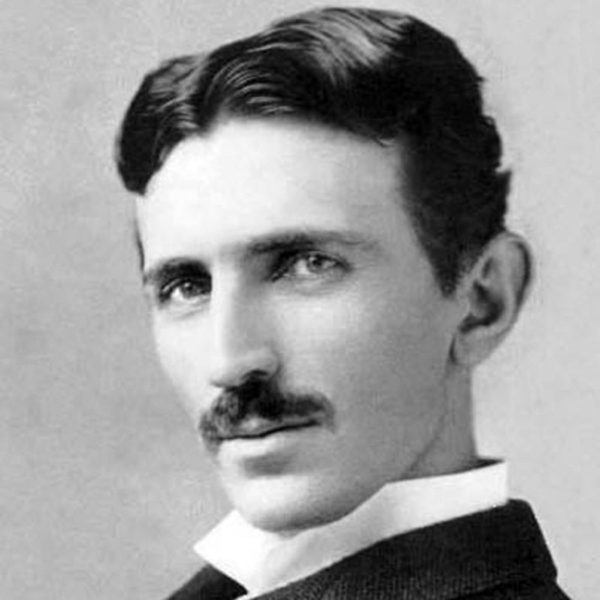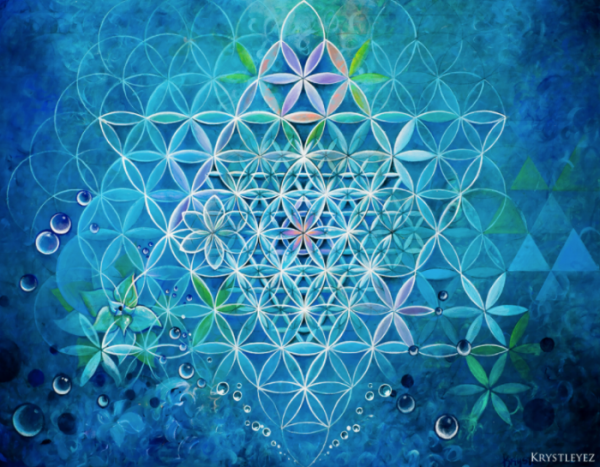Sometime today, I plan to publish Part Two of the Bigfoot interview. If you’ve subscribed to the Channeling Erik YouTube channel, you should receive the notification. I hope you enjoy it! I’ll post the last part on Friday. If you know of any Bigfoot websites, feel free to share. Bigfoot would approve. (I never thought I’d be typing those three words.)
Be sure you register for the Channeling Erik Tour event in Denver by clicking on the button in the right sidebar of the homepage. Don’t be left high and dry. You don’t want to see the words, “Out of stock!”
An update on the radio show: The first one will air next Thursday 2/4 at 7:00 PM CT. I will announce details on where to go and how to chat or call in with questions soon, perhaps as early as tomorrow! Exciting! Get your questions ready (one per caller, please)!
I just received my courtesy copy of Erik’s book in audiobook format. Even if you have the paperback, it’s always fun to listen to it in narrative form because it’s like having a conversation with Erik in your living room. It’s also in Audible form so you can download it to your smartphone or mp3 player. I wonder if Erik left any EVPs? I bet he did! I kind of feel sorry for the narrator repeat Erik’s colorful language!
If you want to order the Audible format, click HERE.
If you want the actual audiobook, click HERE.
Enjoy as Einstein continues to explain the nature of our reality. You might want to read this one a couple of times, too!
Me: So what is dark matter and dark energy, then? Are they both the blackness?
Einstein: Yes.
Me: Are they the same? Is dark matter the same as dark energy or are they different in some way?
Einstein: As you so intelligently said before, all matter is made of energy. They are the same.
Einstein calling me intelligent? I’ll have to alert my kids who, because of my many quirks and foibles, sometimes wonder how I ever became a physician. I remember when Erik was around four, he dropped a heavy rock on his foot. While he was crying, I soothed him, did the usual “kiss and blow” thing, and checked all his little bones. I assured him he was okay and that nothing was broken after which he said, sobbing, “Mommy, take me to a real doctor.” Sigh.
Me: So they’re the same. All right. Scientists are acting like they’re two different things. Why?
Einstein: They think they’ve found two different things because there’s more praise over multiple discoveries than just one.
Me: Okay. This dark energy—I like to call it energy since everything is basically energy—is that the infinite source of energy that we’ll eventually tap into, that Zero Point Field? Is that where all abundance comes from that defies the illusion of scarcity?
Einstein: Yes.
Me: Okay. Now, is death transitioning from these little black holes into white holes? I heard that somewhere. Is it transitioning from all these little subatomic black holes into white holes? You can say no if it’s not.
Dur.
Jamie: Yeah, the thing that he’s contradicting and I keep asking him to elaborate is the term, “hole.”
Me: Okay. Tell me.
Einstein: All darkness contains light, and all light contains darkness.
I hear a lot of background noise.
Jamie: Can you hear all that racket? That’s my kitten deciding to knock everything off the desk in the other room.
Me (Chuckling): Oh, okay. Bad kitty!
Jamie: What happened to having a graceful cat?
Me: Yeah, they’re supposed to tiptoe around things without touching them.
Jamie: This one soccers everything off a desk or a table. It’s ridiculous how much cleanup time it takes.
Einstein: Light contains darkness, and darkness contains light, so they’re one and the same, but it changes depending on the need or the environment within the confinement of the microcosmic world, but they don’t all lead to some magical white hole.
Me: Okay.
Einstein: There’s not this hole thing. I don’t want you to think that there’s this hole that’s 5 foot deep and has a bottom. The definition of a hole doesn’t meet the exact terminology of it.
Me: So it’s not like you have these massive black holes in the Universe? It’s not like the micro version of that?
Einstein: Correct. It’s different.
Me: All right. The Big Bang. Let’s talk about that. Is that how reality was created?
Einstein: No, reality existed before The Big Bang.
Me: Reality has always existed, right, since there’s no time. No linear time.
Einstein: Correct. Are you asking about consciousness instead of reality?
Me: I don’t know. We can talk about that, too. That’s a cool idea. Well, I’ll read off some of the things I want to ask before we close. The nature of reality. We can talk about that. Is reality a 3-D projection of our thoughts? What is reality made of? What does it have to do with The String Theory? How does reality relate to beliefs, and so on? We can start by talking about The Big Bang. What did it do?
Einstein: The Big Bang created the Universe.
Me: Oh, okay. It started our particular universe?
Einstein: Yes, yes, but consciousness extended beyond that; reality extended beyond—
Jamie: When he says, “beyond,” he means, “before.”
Me: Okay, “before.” Going backwards and forwards.
Einstein: Yes, yes, yes. The birth of the Universe isn’t the birth of consciousness.
Me: Okay.
Einstein: It’s the birth of human life as you know it.
He pats his arm to indicate the physical human form.
Einstein: But it’s not the birth of soul as you know it.
Me: Yeah, because the soul has always existed.
Einstein: Yes.
Me: Are you saying that human consciousness had a beginning?
Einstein: For the way the human body is designed on Earth, yes.
Me: Okay, so basically, this massive collective All That Is, sentient, self-aware energy, this consciousness, existed always.
Jamie: Right, because he’s kind of talking like the human body is like an antenna, and this new brand of antenna was designed at The Big Bang and was allowed to come to fruition but the signal has always been there.
Me: Okay, so the tendrils of that massive All That Is collective consciousness goes into human bodies, and those are human consciousness.
Einstein: Yes.
Me: What is reality? What is the nature of reality?
Einstein: When you ask the question, you mean the world around you?
Me: Yes. Our reality, yeah.
Einstein: So very complex, yet so very simple.
Me: I bet.
Einstein: When you come out of the human experience, when the hamster is let out of the ball, the complexities show up. You see how delicate everything is and how many avenues and paths and possibilities there are. But when you’re in the ball, it’s very, very limited. It’s limited to give you a certain kind of life and experience and struggle and joy. So this reality that you see through this plastic ball as you’re moving—because you’re only allowed to move in a certain way, and there are places you can’t go—
Erik: Like under the bed.
Jamie laughs.
Erik: Under the couch, where the ball can’t fit.
Einstein (laughing): Yes, there are places you can’t go. This shapes your beliefs, and when you shape your belief system, it changes what you perceive in your reality. So your belief system very much creates the reality you experience around you—even the beliefs that your mother or father told you to be accurate will shape how you experience your reality. So where does all of this come from?
He sweeps his arm around in front of him.
Einstein: Because you’re stuck in the ball, but why is there still a room and a rug and a wall and all of these things? This is designed by mass need, mass consciousness as well as mass fear. All this energy that is created by thought and emotion creates. It moves as it’s needed. So it’s driven by what the human, the hamster, believes to be its own personal experience when it’s really not. It’s driven by the combination of all thoughts of all living entities.
Jamie: He does these little hand gestures. He’s very precise in how he uses his hands. They’re not flailing.
Einstein: That’s what creates reality.
Me: Is reality an illusion, just a 3-D projection of our thoughts like a projector, you know, on a screen?
Einstein: I wish it were so because I would believe it would be easiest to understand, to just relinquish and say, “This is all an illusion.” I will say all that you know (he points to his head) is an illusion, but what you experience has truth.
Me: Oh, I see. Well said.
Einstein: So we base—the hamster, the human—bases what they know to be the truth to shape the belief, to shape the reality. It provides inconsistencies. You can’t scientifically test this because it is the wrong equation. It is through manifesting; it is through collective thought; it is through emotion that we create reality. Once we can test this, we’ll begin to see what reality truly is, but because we have a belief system that the door is solid and that it holds us in a room, we become captive much like the elephant chained by the foot as a small elephant to something so heavy it can’t leave will become an adult chained to something very light who won’t leave even though it could. It believes it is chained to something so heavy that it can’t leave. Beliefs can be very limiting.
Me: Interesting. Are there probable realities?
Einstein: Yes.
Me: So, every thought that I have, if I go through a choice, one possible choice creates a reality and the other one creates a different reality?
Einstein: Yes, but the strength of some is weak.
Jamie: He’s giving me the image of a rocket and all the flares that come off of it are all the possibilities of the different ways you saw it, thought about it, wanted to react to it, could have reacted to it.
Einstein: And because it’s not continually being fed by your energy, it will play out as far as it can, then cease to exist. It is in every creative moment of a person’s life that they create these sparks, but they don’t –
(Long pause)
Jamie: Getting clarity.
Einstein: They don’t parallel forever.
Me: I got it. Some of them just fade away, I guess. Well, just one last question, and make it really brief. How does the nature of reality relate to The String Theory? Try to make that one brief!
Einstein: It is a good try at explaining the flexibility of energy and the deconstruction of the belief systems about time and distance. It shows that there are more possibilities to reality than confinement.
Me: Ah! Okay.
Jamie (To Einstein): Oh, you’re really stopping there? (To me) Is that short enough?
She laughs.
Me: Anything else you want to share?
Einstein: I very much enjoyed being here.
Me: Aw, you’re just such a great teacher! You actually made sense, and that’s hard to do with this dwindling little old lady brain, so… I appreciate that!
Erik: The next book: The Little Old Lady, the Dead Boy and the Blond Girl.
Jamie and I laugh hard.
Me: All right. I don’t know about that. I think I’ll pass. I have to get through this one.
Jamie: He loves you so much!
Me: Erik, I love you very much, sweetie pie. I got through this hard time. You know, October 6th was your death anniversary and yesterday was the day we buried you, so it’s really hard reliving those days, but it gets easier each year. I just wish you were here.
Poignant pause.
Erik: I love you.
Me: I love you, too.
I love it when people brag about my baby. Here’s another glowing review for Erik’s book, My Life After Death.
This book touched me deeply and made me feel good about not just what comes next, but made me feel confident about what happens now, today. Erik Medhus is such a special young man and I am grateful for him and for his mom. Awesome book! If you haven’t read it yet, do it now!
–Anniep2
Last but definitely not least, here’s Part Two of the Bigfoot interview if you haven’t already watched it. Please, please, please like and subscribe and share this with your friends and family and ask them to do the same. I’m trying to get to 50,000 subscribers! When I do, there will be a big give-a-way: a session with Erik!





